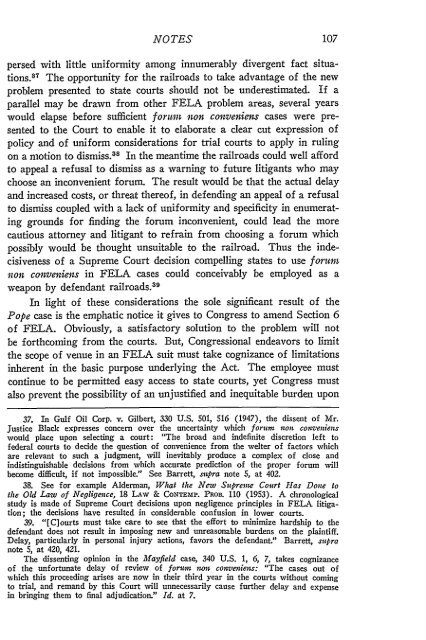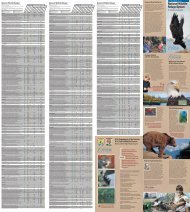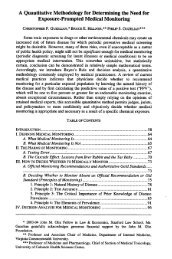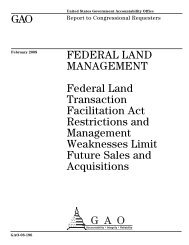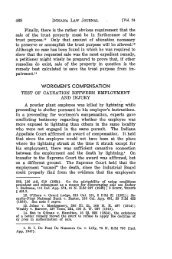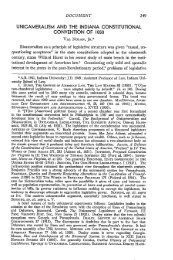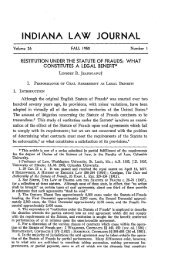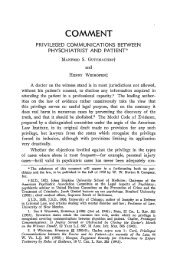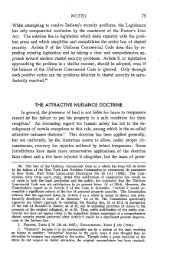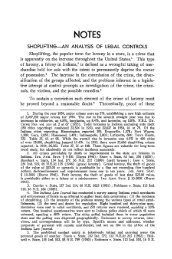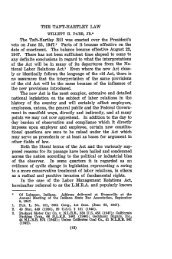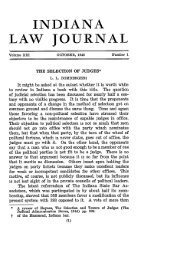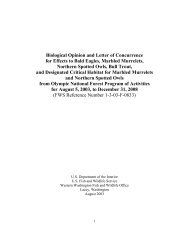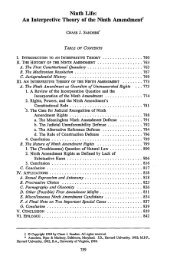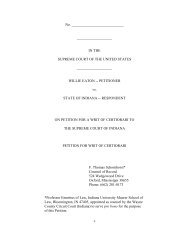fela venue abuse: necessity for congressional amendment
fela venue abuse: necessity for congressional amendment
fela venue abuse: necessity for congressional amendment
You also want an ePaper? Increase the reach of your titles
YUMPU automatically turns print PDFs into web optimized ePapers that Google loves.
NOTES<br />
persed with little uni<strong>for</strong>mity among innumerably divergent fact situations.<br />
37 The opportunity <strong>for</strong> the railroads to take advantage of the new<br />
problem presented to state courts should not be underestimated. If a<br />
parallel may be drawn from other FELA problem areas, several years<br />
would elapse be<strong>for</strong>e sufficient <strong>for</strong>um non conveniens cases were presented<br />
to the Court to enable it to elaborate a clear cut expression of<br />
policy and of uni<strong>for</strong>m considerations <strong>for</strong> trial courts to apply in ruling<br />
on a motion to dismiss. 38 In the meantime the railroads could well af<strong>for</strong>d<br />
to appeal a refusal to dismiss as a warning to future litigants who may<br />
choose an inconvenient <strong>for</strong>um. The result would be that the actual delay<br />
and increased costs, or threat thereof, in defending an appeal of a refusal<br />
to dismiss coupled with a lack of uni<strong>for</strong>mity and specificity in enumerating<br />
grounds <strong>for</strong> finding the <strong>for</strong>um inconvenient, could lead the more<br />
cautious attorney and litigant to refrain from choosing a <strong>for</strong>um which<br />
possibly would be thought unsuitable to the railroad. Thus the indecisiveness<br />
of a Supreme Court decision compelling states to use <strong>for</strong>um<br />
non conveniens in FELA cases could conceivably be employed as a<br />
weapon by defendant railroads. 39<br />
In light of these considerations the sole significant result of the<br />
Pope case is the emphatic notice it gives to Congress to amend Section 6<br />
of FELA. Obviously, a satisfactory solution to the problem will not<br />
be <strong>for</strong>thcoming from the courts. But, Congressional endeavors to limit<br />
the scope of <strong>venue</strong> in an FELA suit must take cognizance of limitations<br />
inherent in the basic purpose underlying the Act. The employee must<br />
continue to be permitted easy access to state courts, yet Congress must<br />
also prevent the possibility of an unjustified and inequitable burden upon<br />
37. In Gulf Oil Corp. v. Gilbert, 330 U.S. 501, 516 (1947), the dissent of Mr.<br />
Justice Black expresses concern over the uncertainty which <strong>for</strong>um non conveniens<br />
would place upon selecting a court: "The broad and indefinite discretion left to<br />
federal courts to decide the question of convenience from the welter of factors which<br />
are relevant to such a judgment, will inevitably produce a complex of close and<br />
indistinguishable decisions from which accurate prediction of the proper <strong>for</strong>um will<br />
become difficult, if not impossible." See Barrett, supra note 5, at 402.<br />
38. See <strong>for</strong> example Alderman, What the New Suprenme Court Has Done to<br />
the Old Law of Negligence, 18 LAW & CONTEMP. PROB. 110 (1953). A chronological<br />
study is made of Supreme Court decisions upon negligence principles in FELA litigation;<br />
the decisions have resulted in considerable confusion in lower courts.<br />
39. "[C]ourts must take care to see that the ef<strong>for</strong>t to minimize hardship to the<br />
defendant does not result in imposing new and unreasonable burdens on the plaintiff.<br />
Delay, particularly in personal injury actions, favors the defendant." Barrett, supra<br />
note 5, at 420, 421.<br />
The dissenting opinion in the Mayfield case, 340 U.S. 1, 6, 7, takes cognizance<br />
of the un<strong>for</strong>tunate delay of review of <strong>for</strong>um iwtn conveniens: "The cases out of<br />
which this proceeding arises are now in their third year in the courts without coming<br />
to trial, and remand by this Court will unnecessarily cause further delay and expense<br />
in bringing them to final adjudication." Id. at 7.


